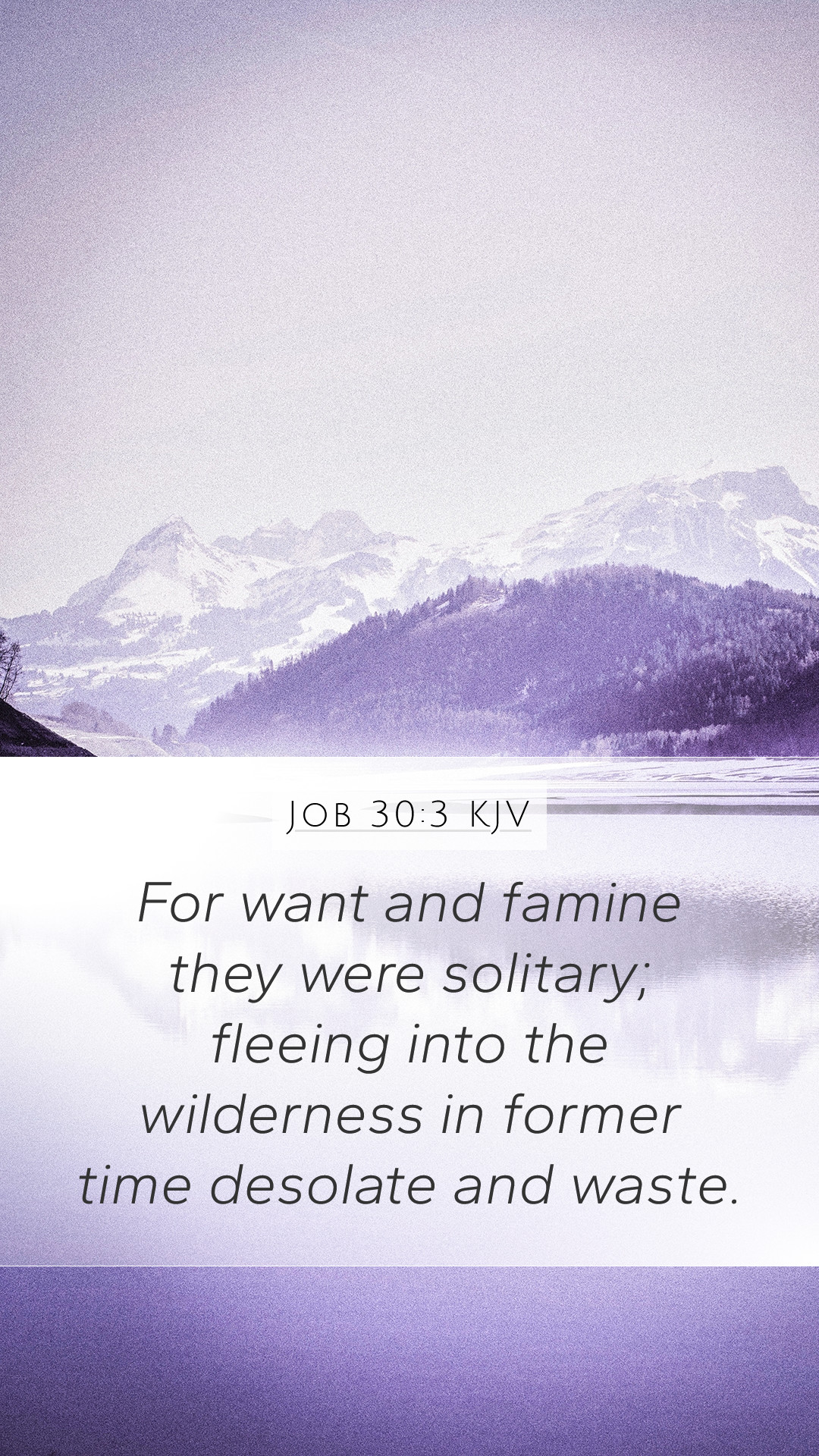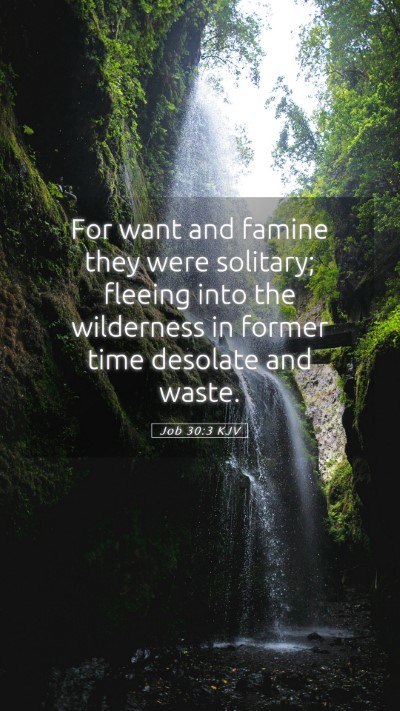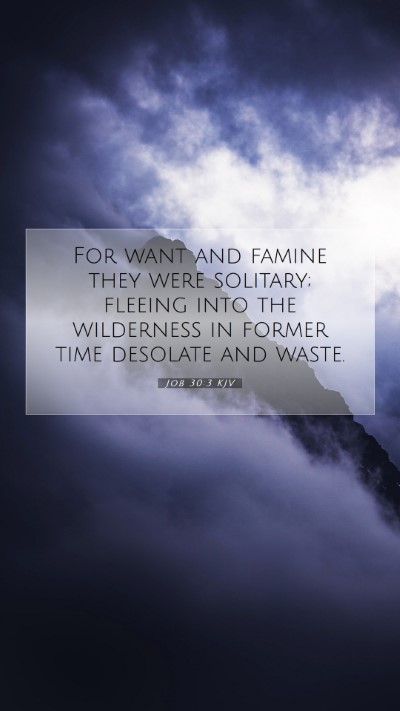Bible Verse Commentary: Job 30:3
Verse: Job 30:3 - "For want and famine they were solitary; fleeing into the wilderness in former time desolate and waste."
Understanding Job 30:3
In this verse, Job articulates the deep sense of abandonment and misfortune experienced by those who were once prosperous but have fallen into despair. The context highlights the drastic contrast between the past and Job's present suffering.
Interpretation from Public Domain Commentaries
Matthew Henry's Commentary
Matthew Henry describes the plight of those reduced to desolation due to extreme want and famine. He emphasizes that these individuals, once thriving, now lead solitary lives on the fringes of society, highlighting the shame and isolation that often accompany poverty. Their fleeing into the desolate wilderness symbolizes not only physical abandonment but also spiritual desolation. Henry urges readers to recognize how swiftly circumstances can change and the importance of compassion toward the needy.
Albert Barnes' Notes on the Bible
Albert Barnes provides insight into the historical and cultural implications of this verse. He notes that those who are driven into the wilderness often have no choice but to become solitary figures, reinforcing Job’s point about the cruelty of fate. Barnes points out that this description serves as a grim reminder of human vulnerability, suggesting that societal pressures can lead to alienation. He underlines the significance of this verse as a poignant reflection on the human condition and our need for communion and support.
Adam Clarke's Commentary
Adam Clarke expounds further on the social ramifications of Job's words. Clarke notes that the desolate state of these individuals was partly due to societal neglect and the harshness of their situations. He draws attention to the imagery of the wilderness, likening it to a place of desolation where hope seems lost. Clarke's interpretation encourages readers to ponder the plight of marginalized individuals and consider their own social responsibilities in fostering community and support.
Biblical Exegesis of Job 30:3
This verse serves as a powerful reminder of the transient nature of life and the capriciousness of human fortune. Job contrasts the former glory of these individuals with their current state, invoking themes of loss, isolation, and the fundamental dignity of being human. The language of "want and famine" highlights not just physical needs but emotional and spiritual longing. This duality offers a comprehensive understanding of the suffering faced by individuals in dire circumstances.
Cross-References
- Psalms 102:6-7: "I am like a pelican of the wilderness: I am like an owl of the desert. I watch, and am as a sparrow alone upon the house top." - Reflecting loneliness and desolation.
- Lamentations 3:19-20: "Remembering mine affliction and my misery, the wormwood and the gall. My soul hath them still in remembrance, and is humbled in me." - A verse capturing deep sorrow.
- Isaiah 51:3: "For the LORD will comfort Zion: he will comfort all her waste places; and he will make her wilderness like Eden, and her desert like the garden of the LORD." - God’s promise of restoration.
Application of Job 30:3
This verse invites reflection on how we view and treat those who are marginalized in our society. It challenges us to maintain empathy and action towards those in despair, especially in today's world where isolation can be all too common. Job's experience serves as a poignant indicator of the importance of community, kindness, and understanding in our interactions.
Conclusion
Job 30:3 is a profound illustration of suffering and the dramatic shifts in human fortune. By studying this verse in-depth, we can gain not only a greater understanding of Scripture but also practical insights for living a compassionate life. In grappling with the realities of desolation and loneliness, we find an invitation to foster connection and support among ourselves and others.
This commentary on Job 30:3 enhances our Bible verse understanding and encourages individuals to explore more Bible study resources as they seek to uncover deeper meanings within Scripture.


